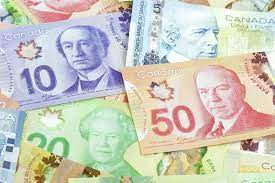
Ontario will partner with Canada’s national government to double the tax added to the price of all vaping products sold in the province. Ontario is the most-populous Canadian province, with about 15.6 million residents.
The tax was announced last week in Ontario Finance Minister Peter Bethlenfalvy’s fall economic statement. No details on a timeline were offered. Ontario Premier Doug Ford—who would have signed off on any new tax plan—had previously earned plaudits from the vaping industry for his “balanced” approach to vaping regulation.
The federal/provincial tax “partnership” scheme, announced in 2022 by the federal government, allows provinces to simply double the current federal vape tax and keep half of the proceeds. The federal government does all the work—which will make the opportunity nearly irresistible to cash-strapped provincial governments.
Ontario vapers will pay double the current federal tax
The current Canadian federal tax has been charged since October 2022 on all bottled e-liquid and prefilled vaping products sold in the country. The tax applies to products whether they contain nicotine or not.
The federal tax is $1 per two milliliters (or portion thereof) for the first 10 mL of e-liquid in a sealed container (bottle, pod, cartridge, etc.), and $1 per 10 mL for additional liquid (after the first 10 mL) in the container. The prices in Ontario, when the federal/provincial tax “partnership” takes effect, will be doubled.
So, instead of vapers paying an extra $7 in taxes on a 30 mL bottle of vape juice—as all Canadian vapers do now—the tax for Ontario consumers will double to $14. Instead of paying an extra $1 per prefilled pod, Ontario vapers will pay $2 per pod.
The provincial cash grab is being justified by the Ford government as a health measure, intended to reduce youth vaping and prevent vapers from following a “gateway” to smoking. “Research suggests youth vaping can lead to smoking,” says the finance report.
But extensive research shows that any kind of vaping product restriction—including taxes—increases cigarette sales and smoking. Vapes and cigarettes are economic substitutes, which means laws or regulations that make one more expensive or more difficult to obtain will improve sales of the other.
“Ontarians who vape deserve so much better than to be treated as a piggy bank to fill government coffers,” said Maria Papaioannoy, a spokesperson for Canadian vaping advocacy group Rights4Vapers. “All we want is an affordable alternative to smoking.”
Vape taxes in other provinces
Alberta and Prince Edward Island are also considering signing on to the federal/provincial tax scheme, according to Physicians for a Smoke-Free Canada. British Columbia, Newfoundland and Labrador, Nova Scotia, and Saskatchewan already have provincial taxes on vaping products that predate the federal tax.
Quebec, which also recently banned flavored vaping products, has announced it will implement a new provincial vape tax sometime in 2024. Quebec is Canada’s second most-populous province.
